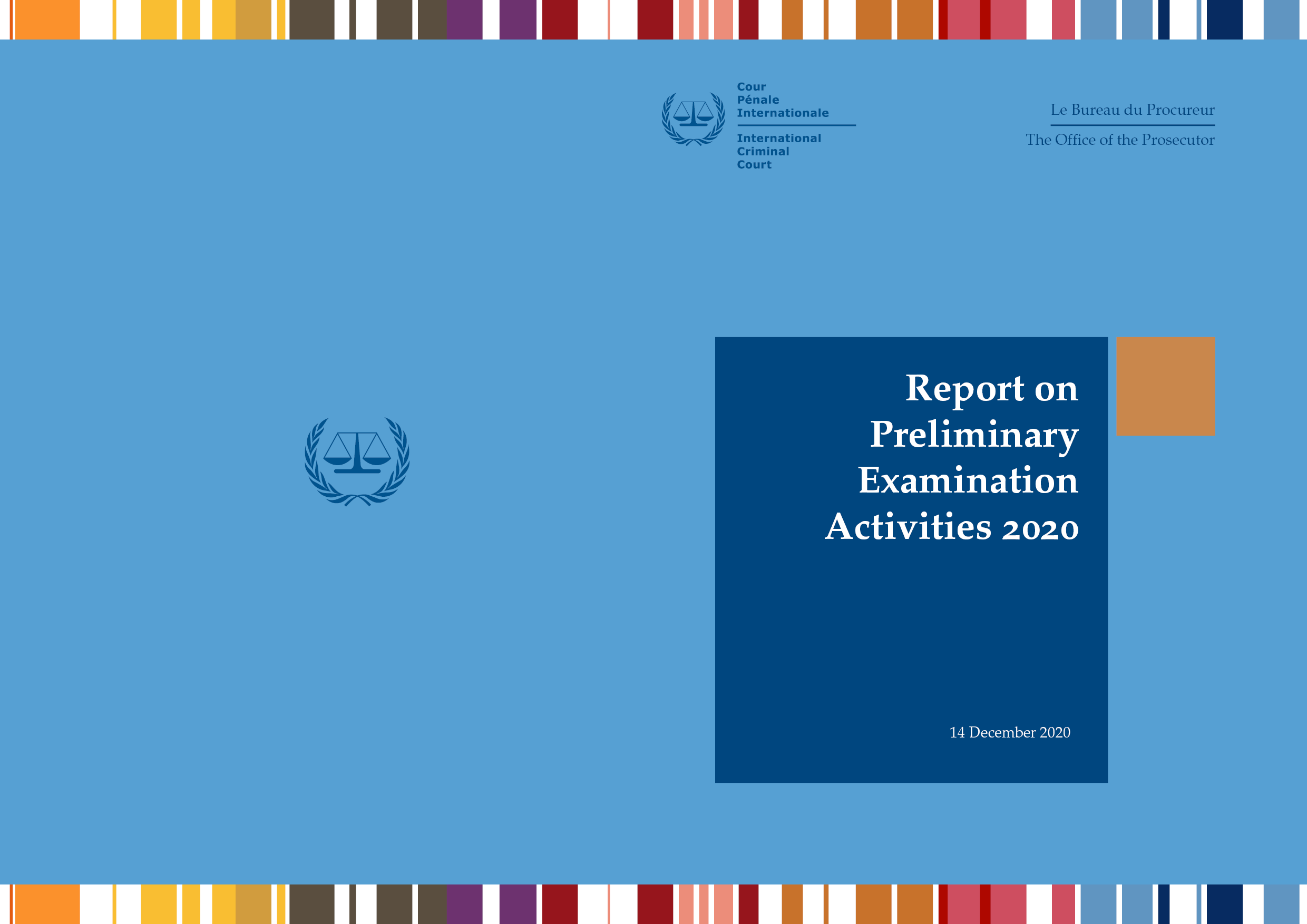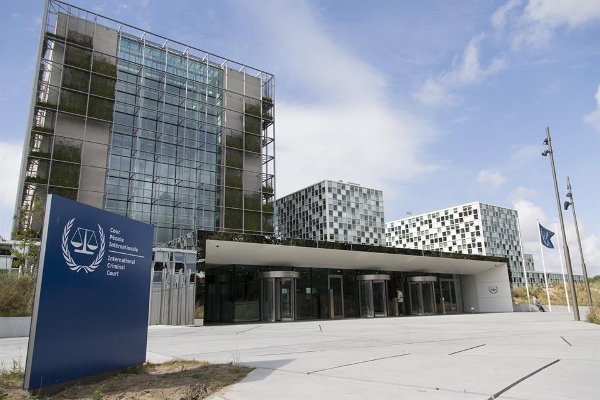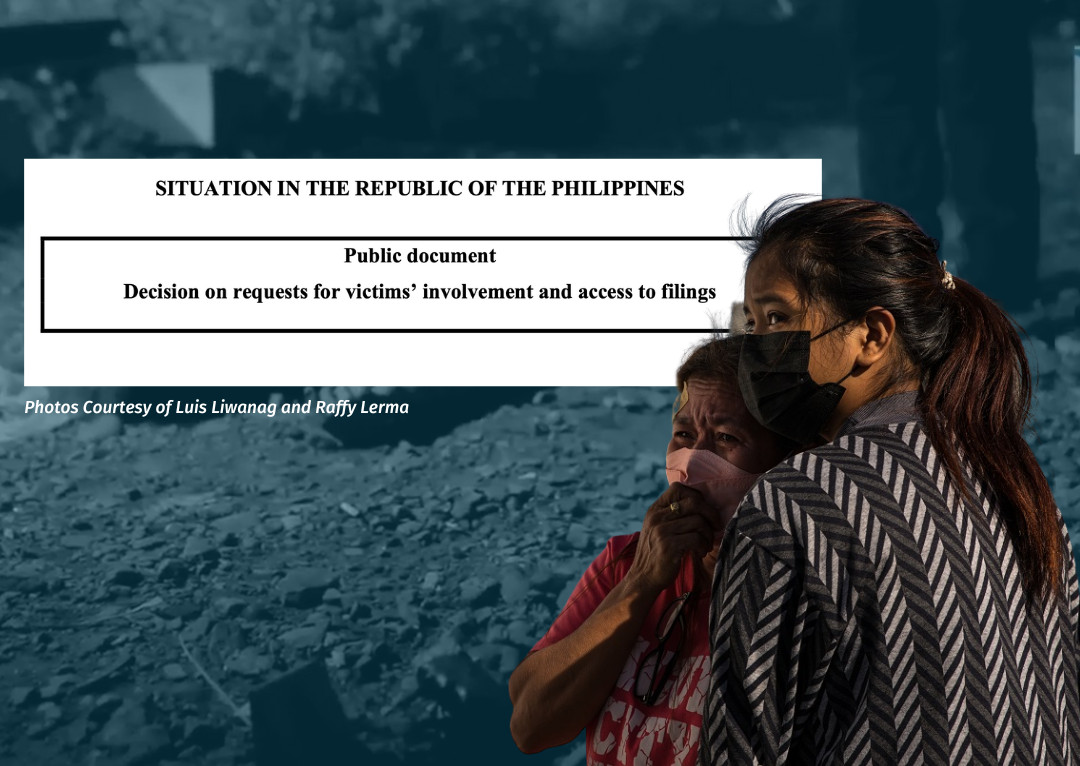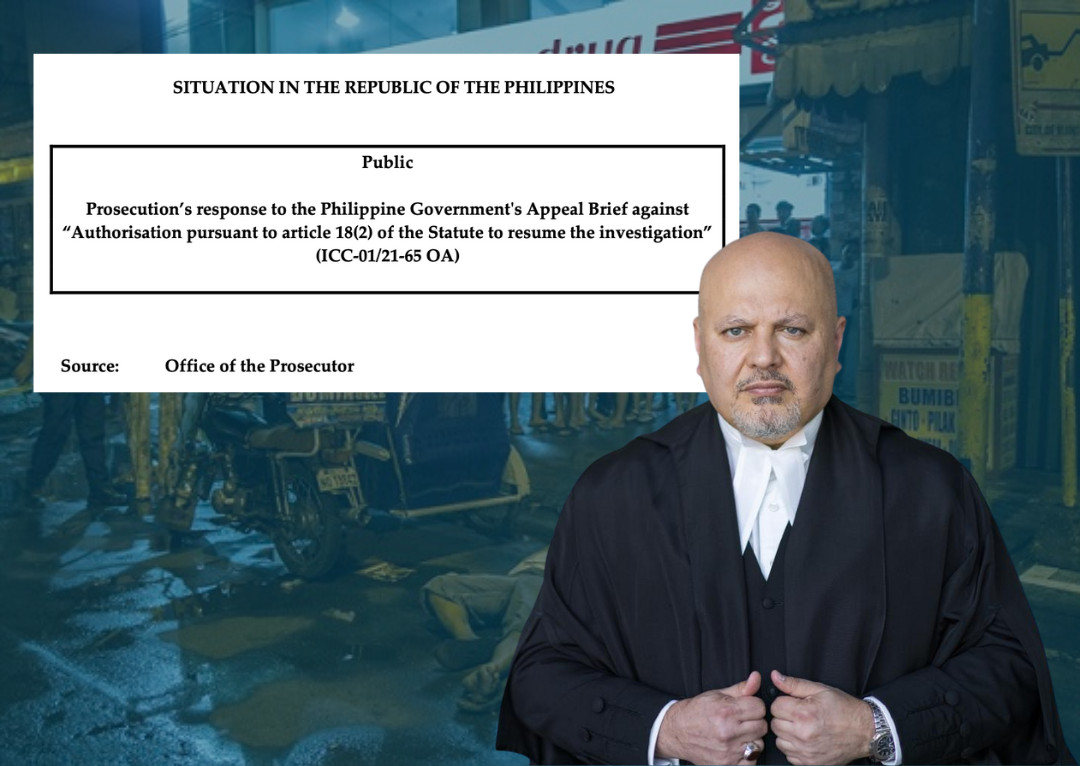The one thing that spooks President Duterte fiercely is the case of crime against humanity brought against him before the International Criminal Court in The Hague which gave him the dubious distinction of being the first Southeast Asian leader to be charged before the ICC.
Rare is his public speaking engagements that he does not take a jab at ICC Prosecutor Fatou Bensouda who announced last Feb. 8 that she has started a preliminary examination of the information filed in connection with the extrajudicial killings under the Duterte presidency.
And when Duterte is agitated, he spews out fake news. That has rubbed on his Presidential Spokesperson Salvador Panelo who immediately issued an incoherent statement last Thursday denouncing the decision of Bensouda to continue assessing the information filed with her office against Duterte.
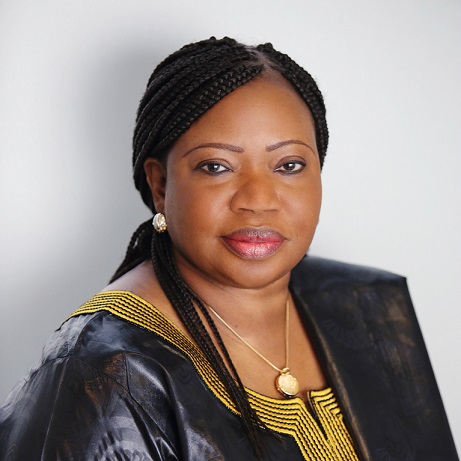
ICC Prosecutor Fatou Bensouda in her Annual Report said she will assessing the information filed with her office on Duterter’s drug war
Bensouda said her office has received a total of 52 communications related to extrajudicial killings in the Philippines since she started the preliminary examination on Feb. 8, 2018. Some of those who filed the communications include lawyer Jude Sabio, Sen. Antonio Trillanes IV and Magdalo Party list Rep. Gary Alejano, and some families of the more than 4,000 victims of Duterte’s drug war.
This assessment, she said, “is strictly guided by the requirements of the Statute and being conducted with a view to reaching conclusions within a reasonable time frame. The Office will also continue to engage with a variety of reliable sources and relevant stakeholders on all matters relevant to the preliminary examination of the situation in the Philippines. In accordance with its Policy Paper on Preliminary Examinations, the Office may further gather available information on relevant national proceedings, as necessary and appropriate at this stage. “
Panelo tried to pretend Malacañang is not bothered by Bensouda’s latest report. He said, “The ICC is free to proceed with its undertakings” because “as far as we are concerned, the Philippines never became a State Party to the Rome Statute which created the ICC. Thus, we will treat this tribunal as non-existent and its actions a futile exercise.”
Following Panelo’sargument, if the Philippines was never a party to the ICC, why did the Duterte government file a notice ofwithdrawal with the United Nations on March 17, 2018.
It’s common sense that you don’t withdraw from any group that you have not been a part of.
The withdrawal will be effective one year after the filing of the notice of withdrawal which was on March 17, 2018. The ICC will , however, retain jurisdiction with respect to alleged crimes that have occurred on the territory of the Philippines during the period when it was a State Party to the Statute starting Aug. 30, 2011.
Interestingly, Panelo cited the conviction by the Caloocan court ofthree policemen for the killing of 17-year old Kian delos Santos as proof that the justice system is working. “. With this, the ICC does not have any basis at all to advance its activities regardless of whether it is still in the preliminary examination phase,” he said.
Panelo’s statement answers the skepticism of many, who even as they lauded the conviction of de los Santos killers, suspecteda dubious agenda behind it.
In her report, Bensouda said the preliminary examination focuses on crimes allegedly committed in the Philippines since at least 1 July 2016, in the context of the so-called “war on drugs” campaign launched by the government to fight the sale and use of illegal drugs. In particular, it focuses on allegations that President Duterte and other senior government officials promoted and encouraged the killing of suspected or purported drug users and/or dealers, and in such context, members of PNP forces and private individuals (such as vigilante groups) have carried out thousands of killings throughout the Philippines and in particular in the Metro Manila area.
“In particular, it has been alleged that since 1 July 2016, over 12,000 persons have been killed for reasons related to their alleged involvement in drug use or dealing, or otherwise due to mistaken identity or as collateral damage in the course of police anti-drug operations. Reportedly, over 4,800 of these total killings were committed in acknowledged anti-drug police operations. Thousands of killings were also reportedly carried out by unknown assailants. While some of these killings have reportedly occurred in the context of fights between or within gangs, it is alleged that many of the reported killings by unidentified assailants took place in the context of, or in connection to, the government’s anti-drug campaign. In this regard, it has also been alleged that some of these vigilante-style executions committed by private citizens were coordinated or planned by members of the PNP, and/or were actually committed by members of the police (who wore disguises in order to conceal their identity as members of the police).
“Reportedly, most of the victims have been young men, especially from urban areas and poorer backgrounds, who were suspected of having some involvement in crime- or drug-related activities. In addition, it has been reported that some local public officials were allegedly killed because of their purported links to the trafficking of narcotics. It is also alleged that over 70 persons aged 18 and under have been killed in the context of the anti-drug operations conducted since 1 July 2016, including five alleged cases where the victims were seven years old or younger. “
Bensouda also said “Any alleged crimes occurring in the future in the context of the same situation could also be included in the Office’s analysis. Accordingly, the Office will also continue to record allegations of crimes committed in the Philippines to the extent that they may fall within the jurisdiction of the Court.
